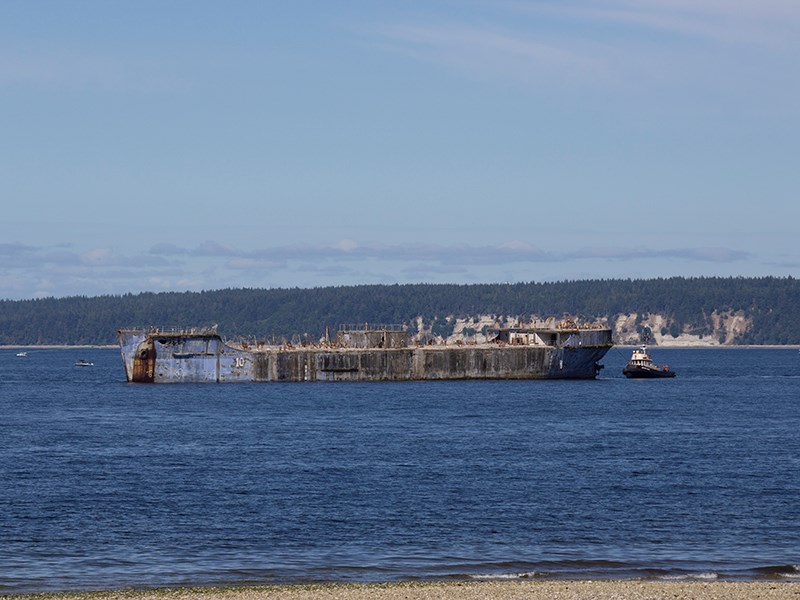One of the major news stories of the year carried on throughout 2018.
City of Powell River was hit with an order from the Agricultural Land Commission (ALC) to tear up the Hemlock Street loop around Timberlane Estates, which will cost taxpayers $561,000.
On October 26, the city received a letter from the ALC that ordered the remediation of the loop and return of the 0.2 hectare lot to the Agricultural Land Reserve. An ALC investigation that precipitated the order followed a citizen complaint.
Mayor Dave Formosa, dogged during the municipal election by accusations of his business interests being in conflict of interest with his duties as mayor, was caught in the crosshairs. He and his partners had developed the Timberlane subdivision.
The history of the section of the loop goes back years but the ALC timeline in the remediation order begins in 2011, when the road was registered on property title without ALC approval. The city purchased the 0.2 hectares of land, which leaves it responsible for the cost of remediation, according to the ALC. The tension between the ALC and the city began to rise in 2017 and then on March 1, 2018, city director of planning Thomas Knight reported to committee of the whole that the commission had refused the road’s authorization.
Approval of the loop has included a series of mistakes and missteps that began with the city’s former approving officer, according to Knight.
The issue will drag into 2019 as the city prepares to tear up the road and return it to the Agricultural Land Reserve. The city has appealed the order.
On October 22, 4,483 voters, a 46 per cent turnout, went to the the polls, and decided against change and to stay the course. Formosa was elected mayor for his third and, he said, final term. Four incumbent councillors were re-elected, including longtime councillors Maggie Hathaway and Jim Palm, who returned for their fourth terms, and Rob Southcott and CaroleAnn Leishman for their second.
The two new councillors elected were Cindy Elliott and George Doubt. However, Doubt’s election is in question before the BC Supreme Court. He faces a petition from candidate Allan Drummond filed against City of Powell River.
Drummond wants the election results declared invalid, and for he and Doubt to contest the seat in a runoff vote. The court is expected to hand down a decision early in January 2019.
After 18 years of debate and vigorous opposition from some Townsite residents, the city finally settled on the location, design, engineering and conveyance routes to a new wastewater treatment plant located in Townsite. All of the sewage from Tla’amin Nation, Wildwood, Westview, Cranberry and Townsite will be collected at the facility and treated. The new plant will bring Powell River in line with provincial and federal regulations.
Council and Powell River residents were shocked when the cost of the plant escalated beyond expectations. The original baseline for the project was reported at $30 million. Estimates then increased to $70 million.
On Saturday, June 23, the community turned out to watch the sinking of YOGN 82, the first of a proposed four vessels Catalyst Paper Corporation and Artificial Reef Society of BC plan to sink, creating an artificial reef unique in the world.
The World War I and II concrete vessels have formed the breakwater at the Catalyst mill since the early 1960s.
The excitement started to build when three tugboats began maneuvering YOGN-82 into the precise location over its final resting place approximately 600 metres off the Willingdon Beach breakwater.
At approximately 11:40 am, a blast of horns indicated a fire-in-the-hole warning, followed by a series of explosive charges set in the hull.
The vessel began to sink slowly, then submerged beneath a surge of churning white water bubbling at the surface.
At the end of the year came the end of an era with the demolition of the former Inn at Westview building, after a year of back and forth between the city and building owner Seaboard Hotels. The inn, built in 1966, is now a pile of debris.



